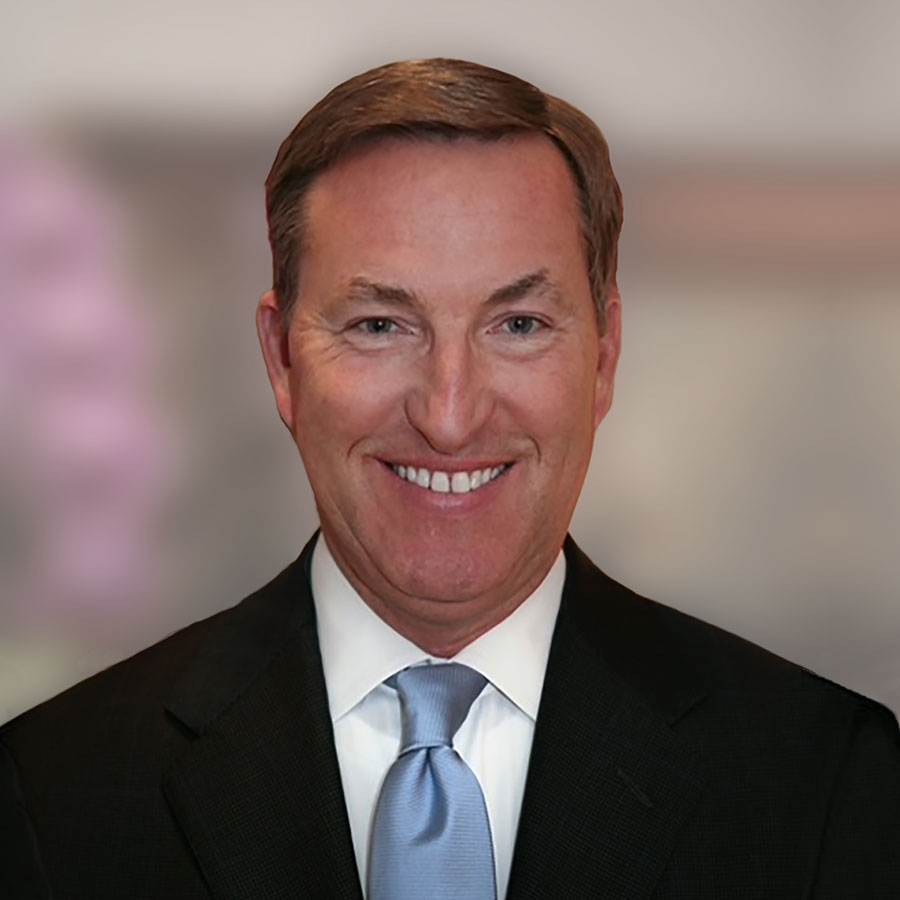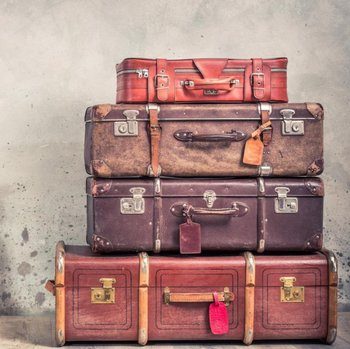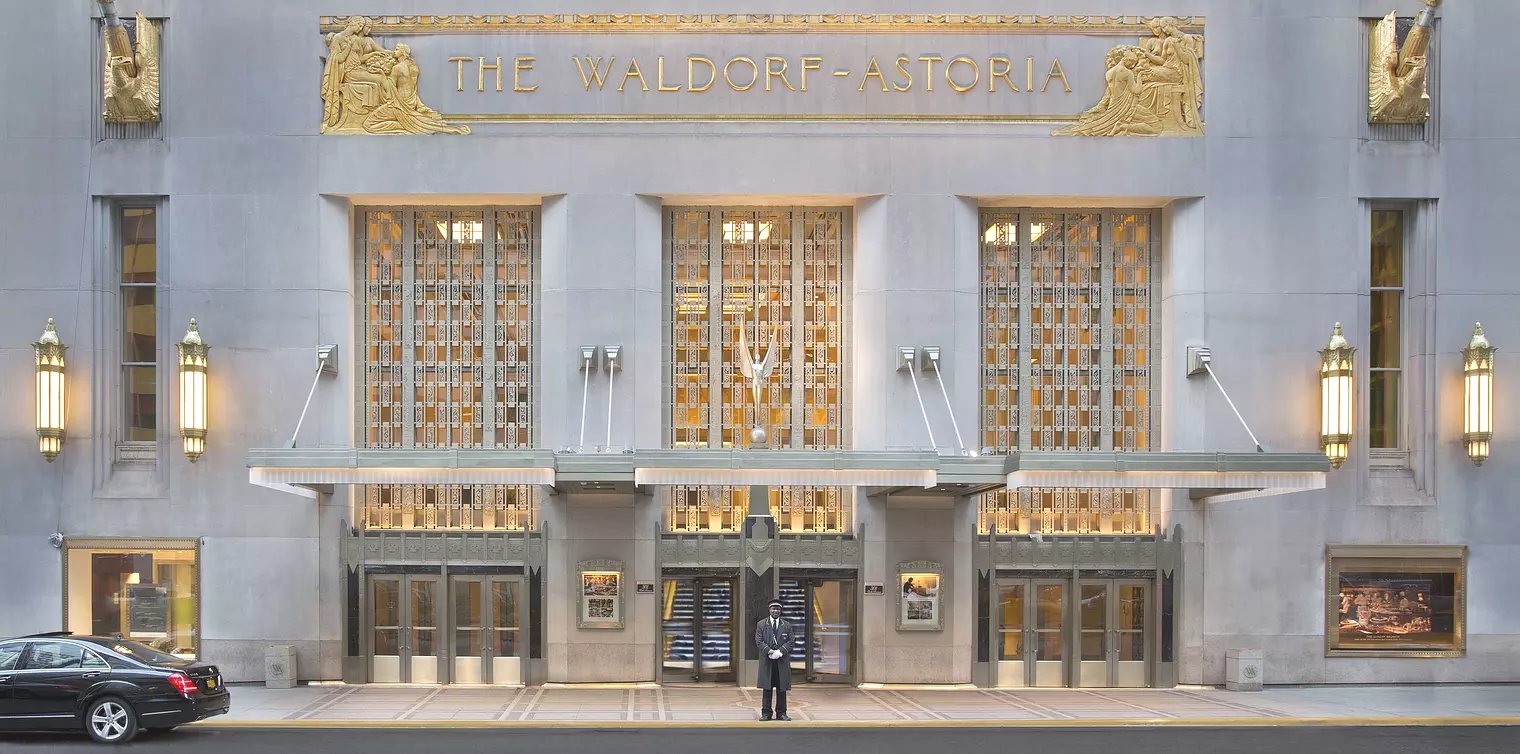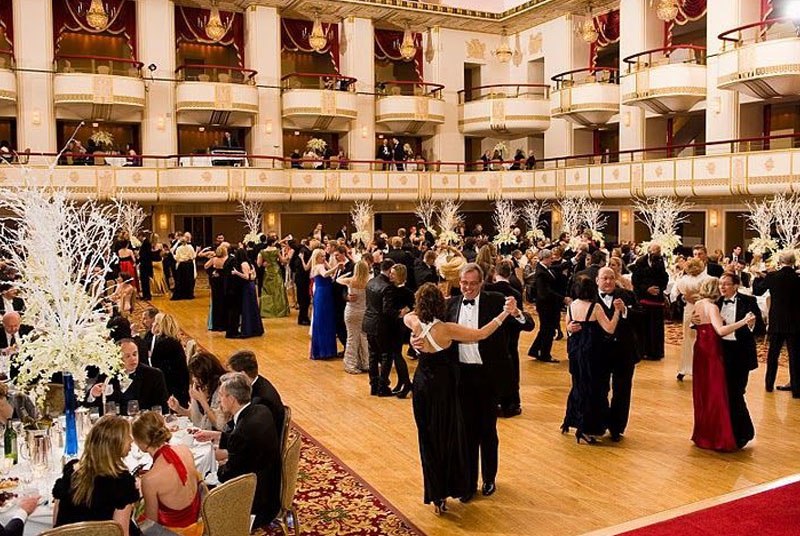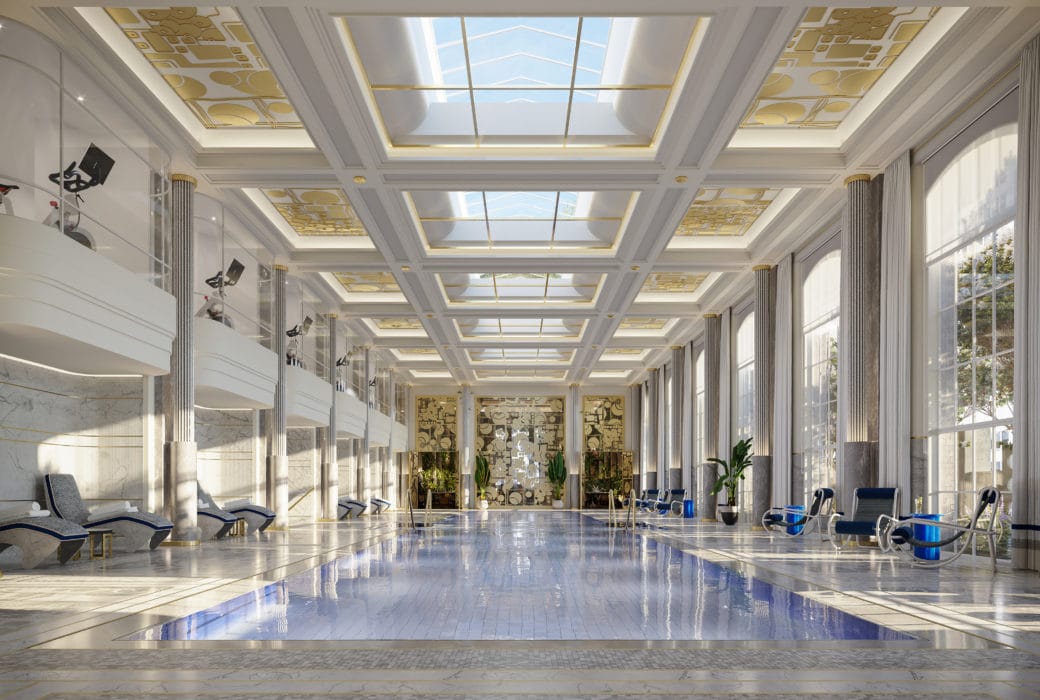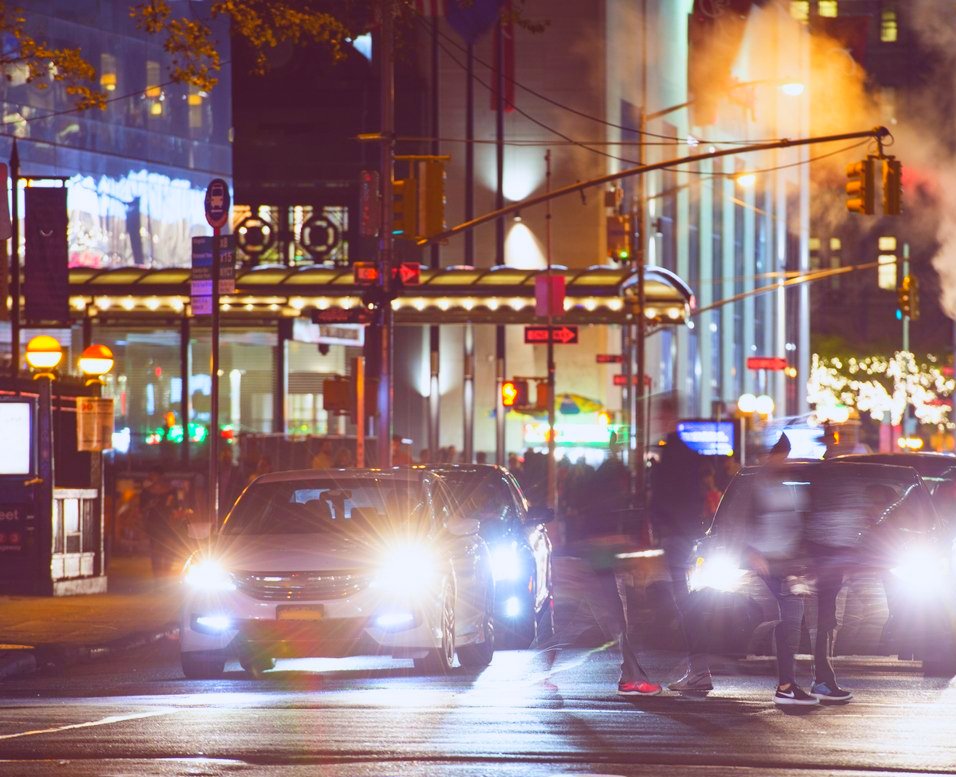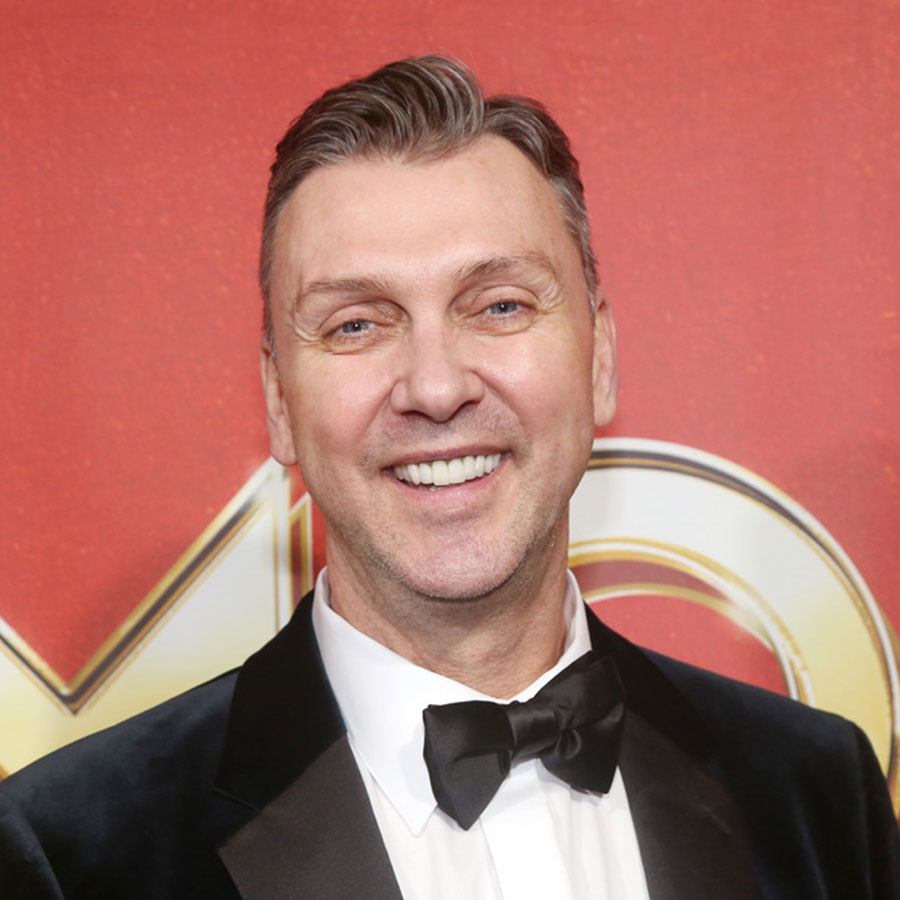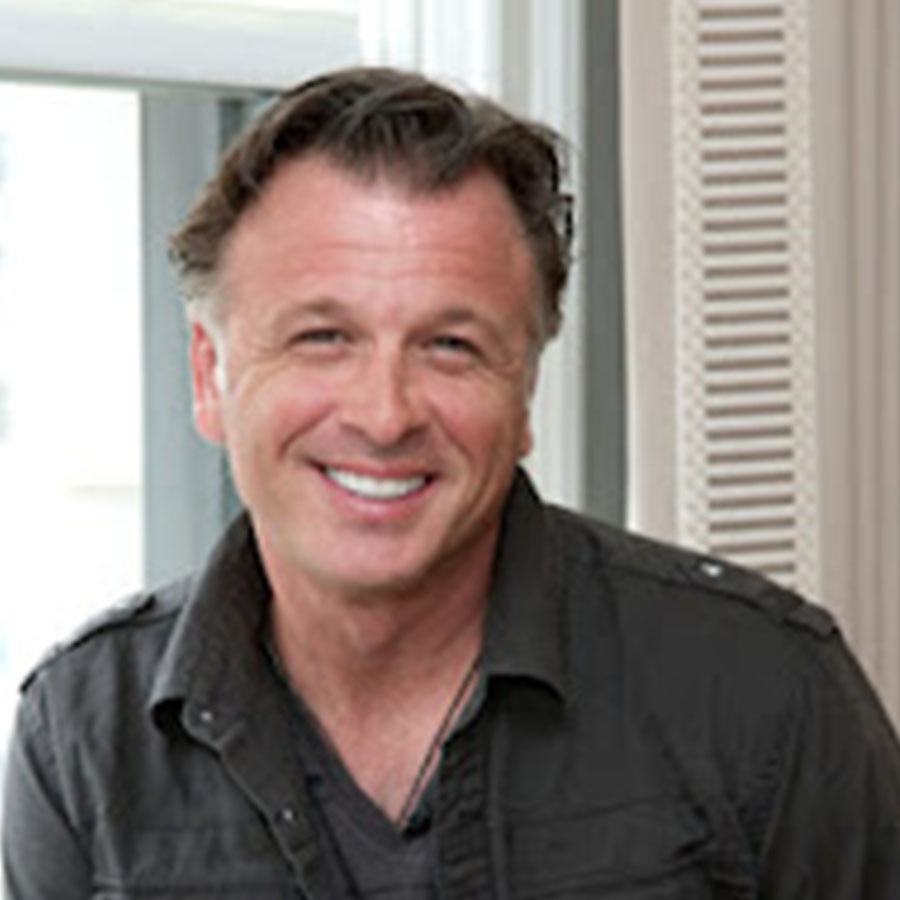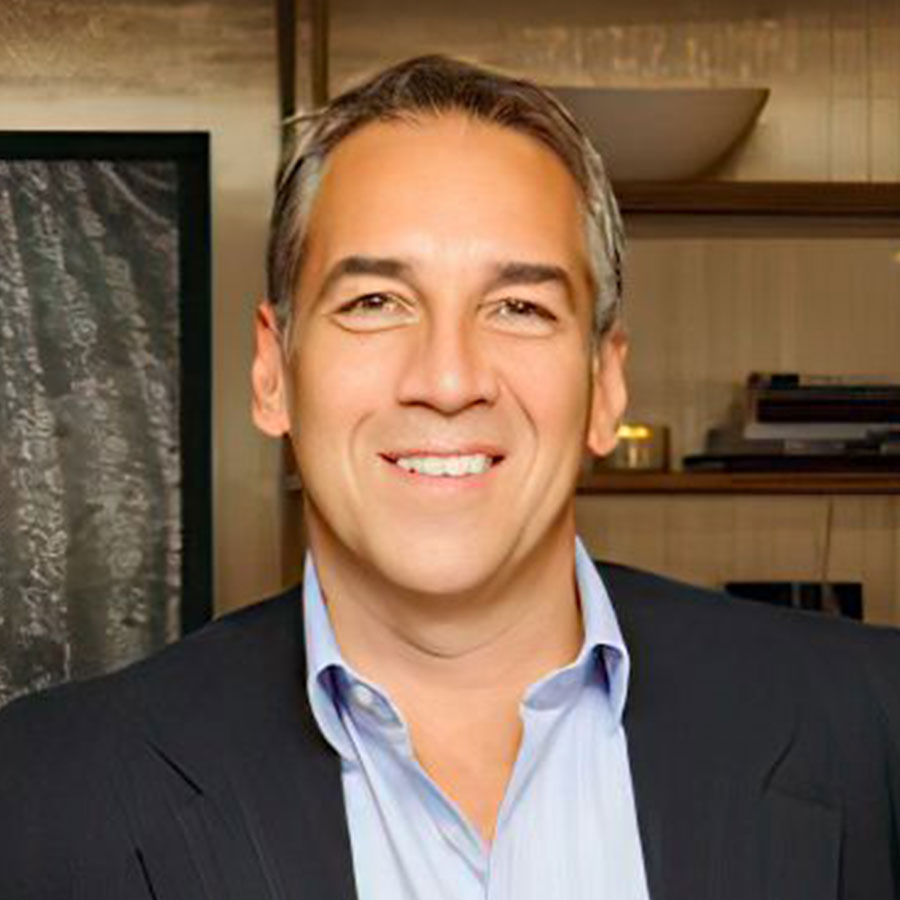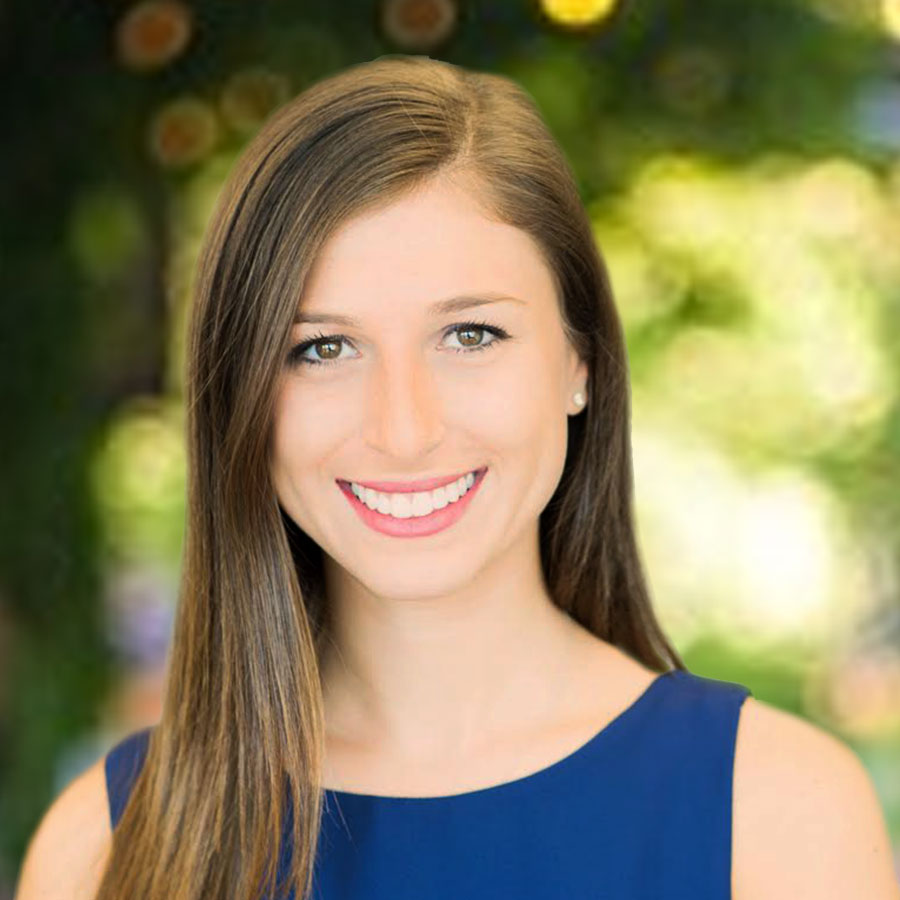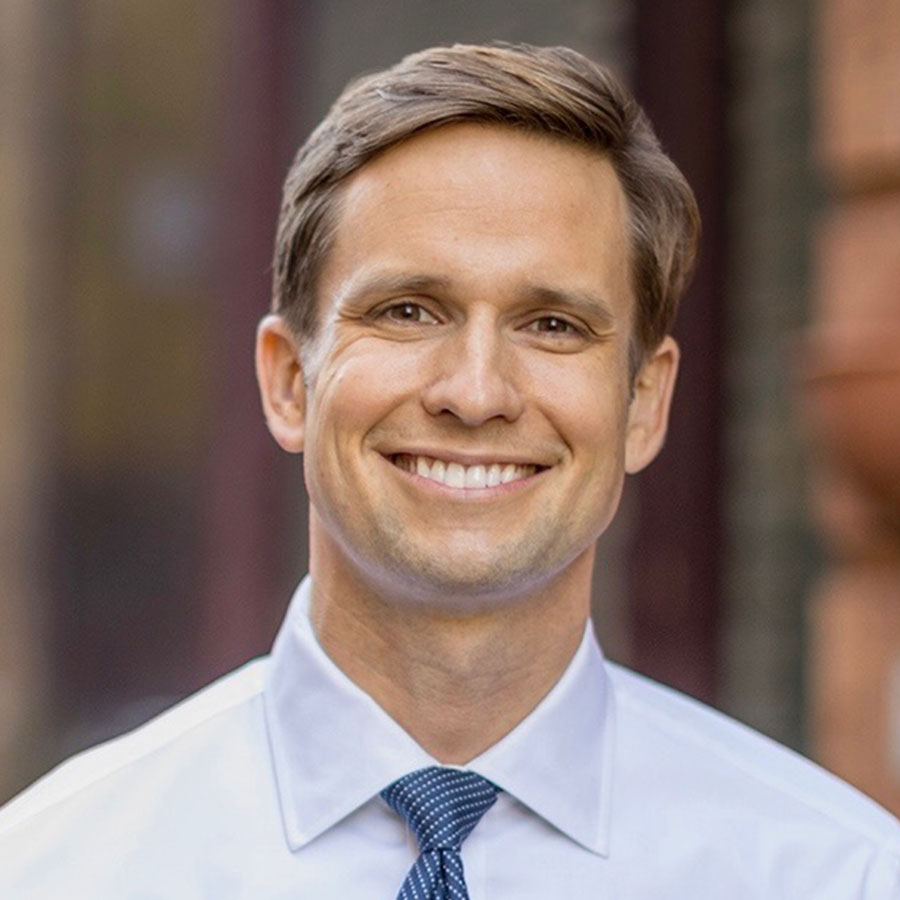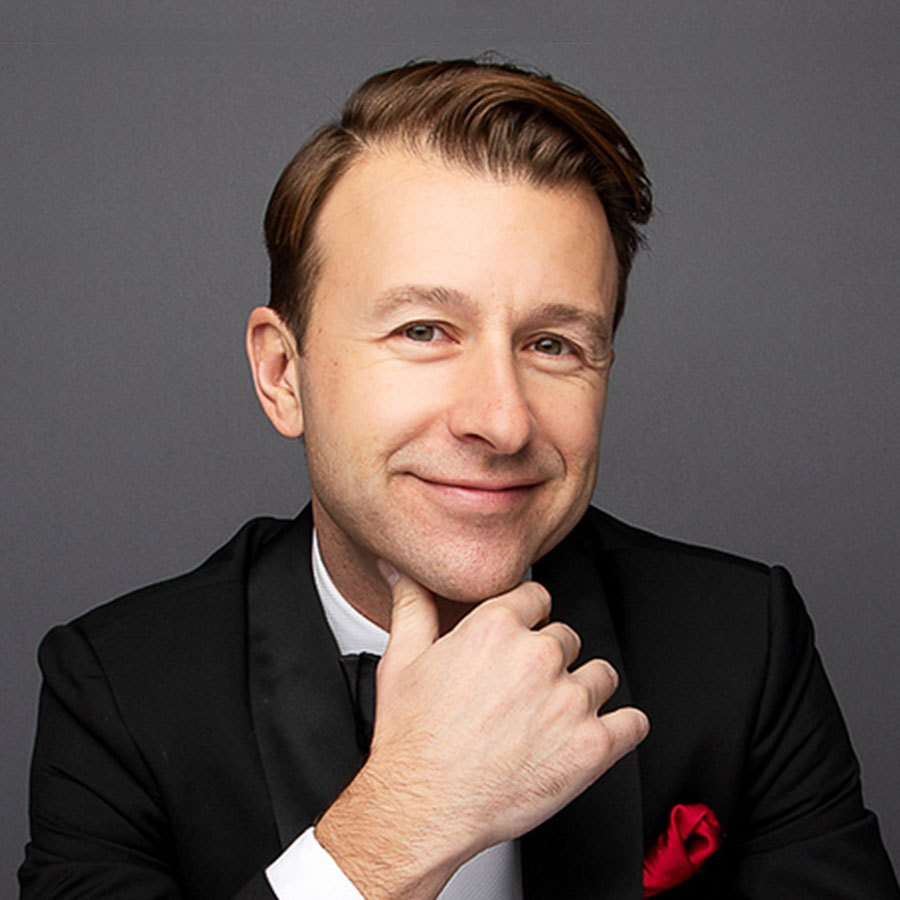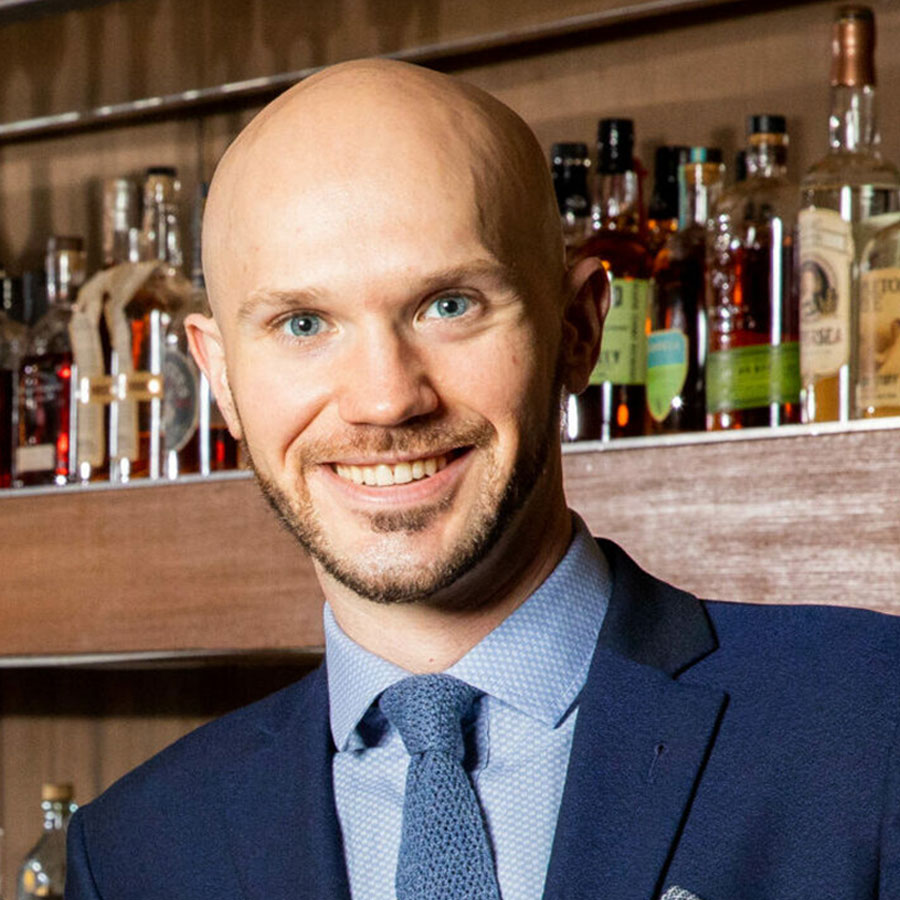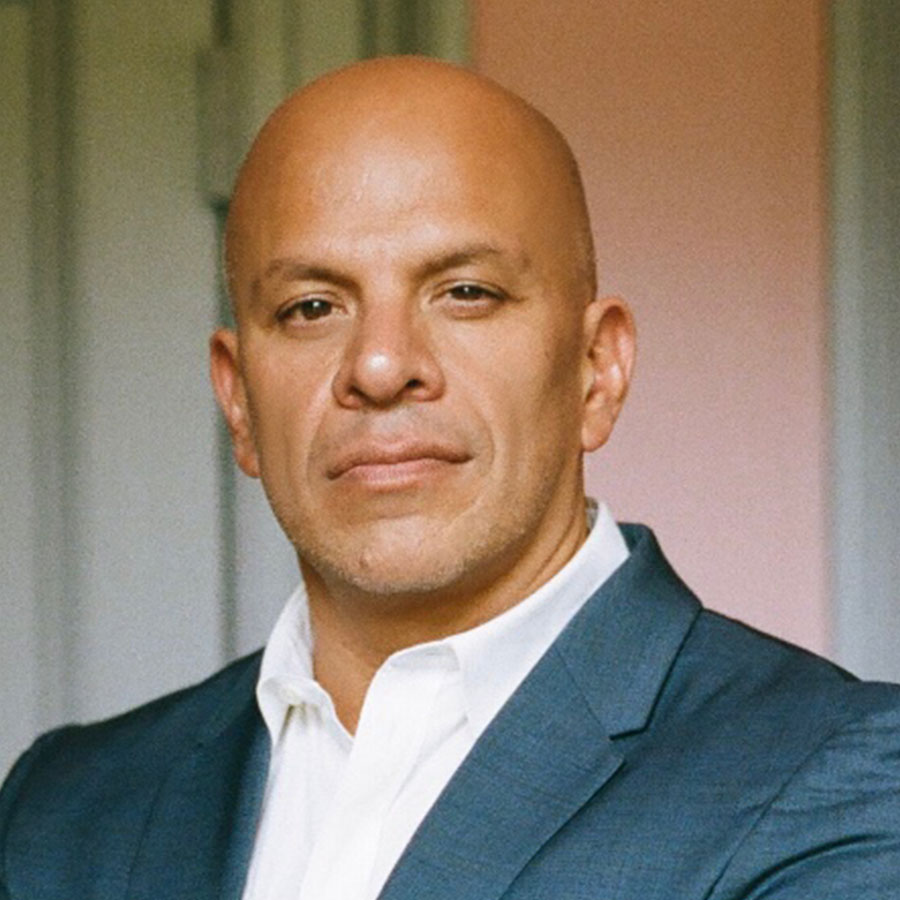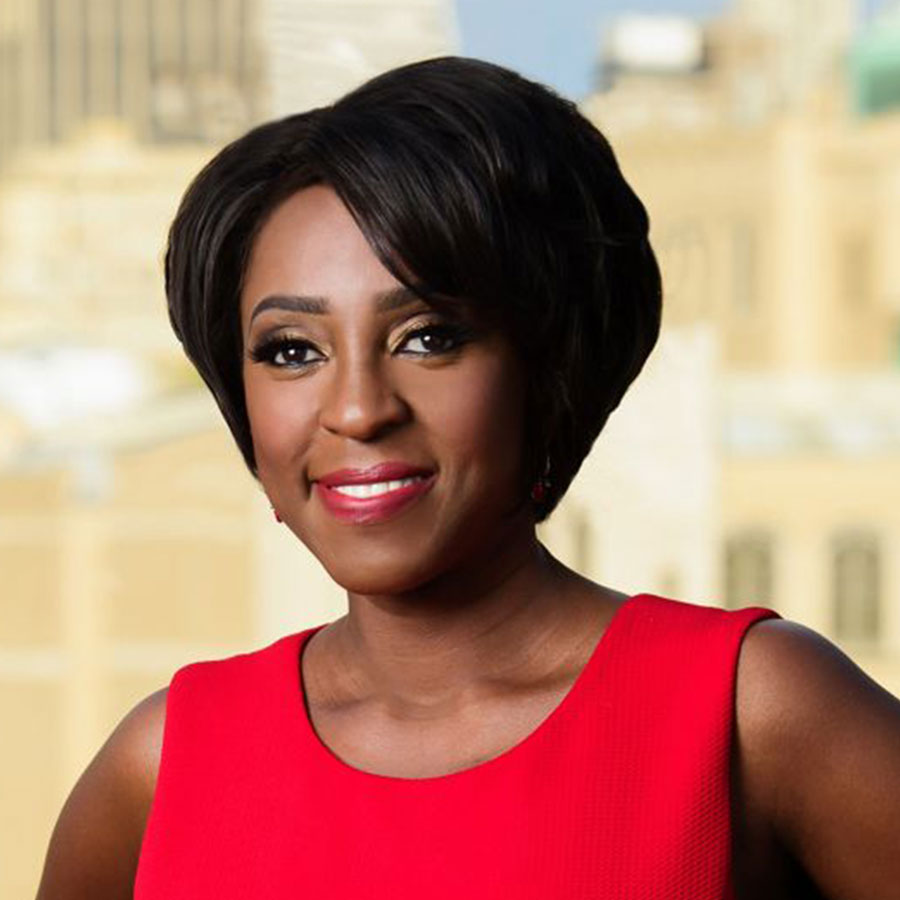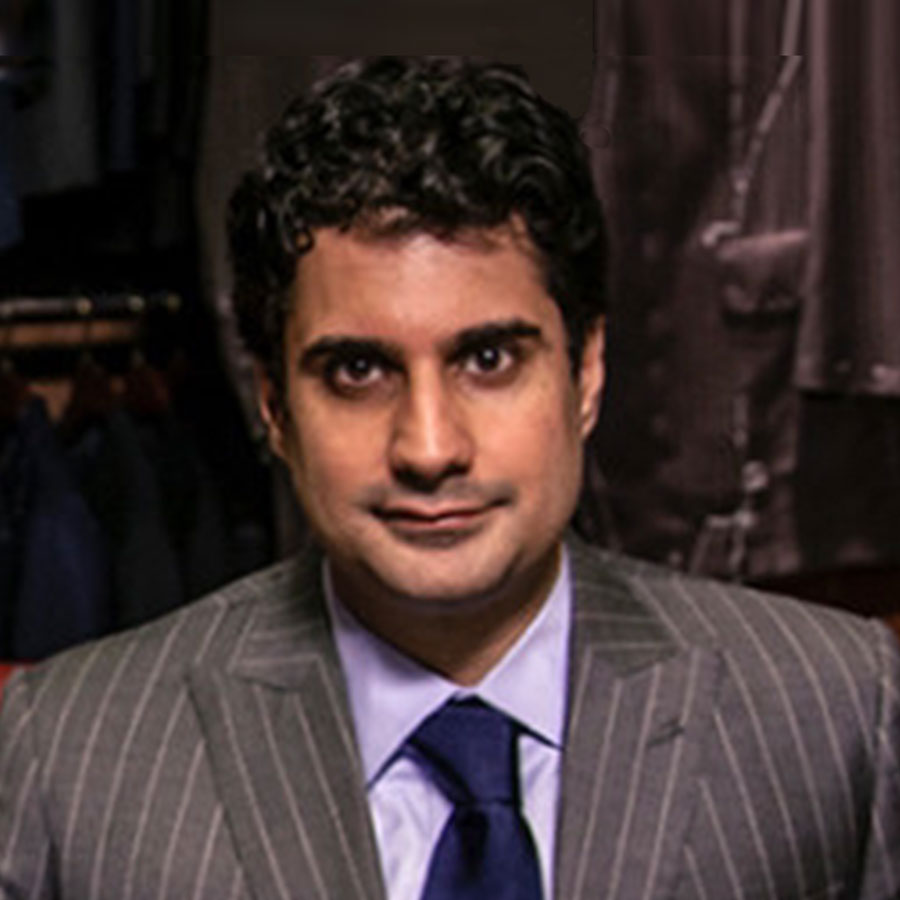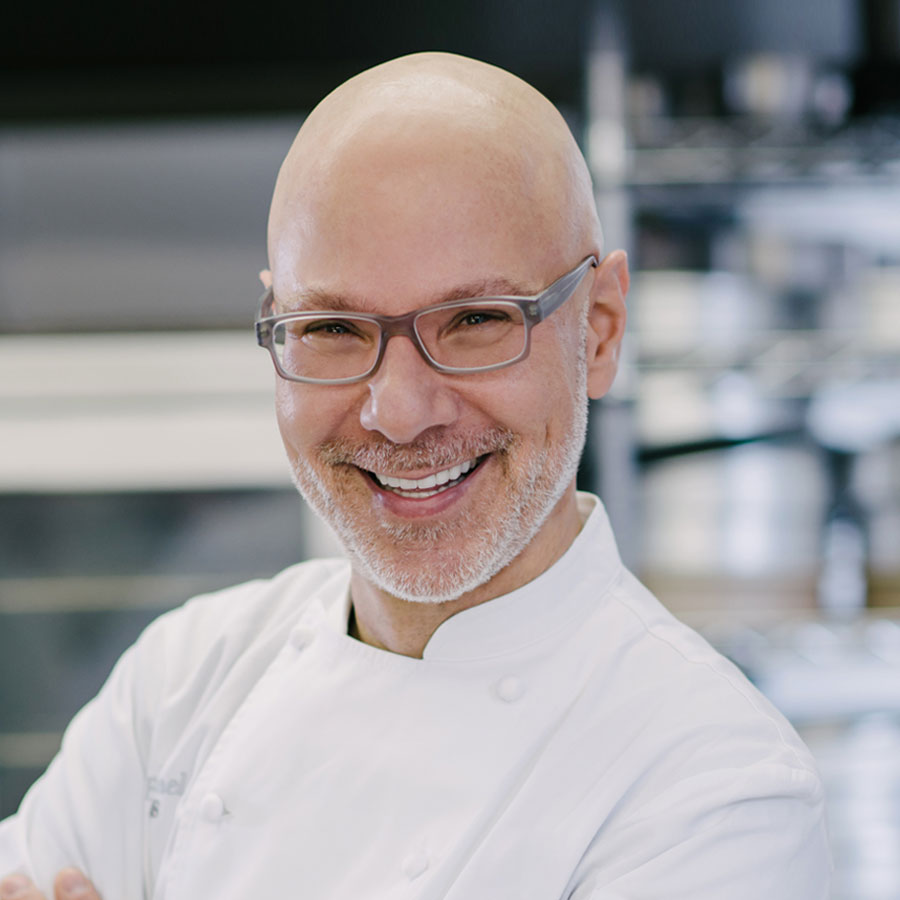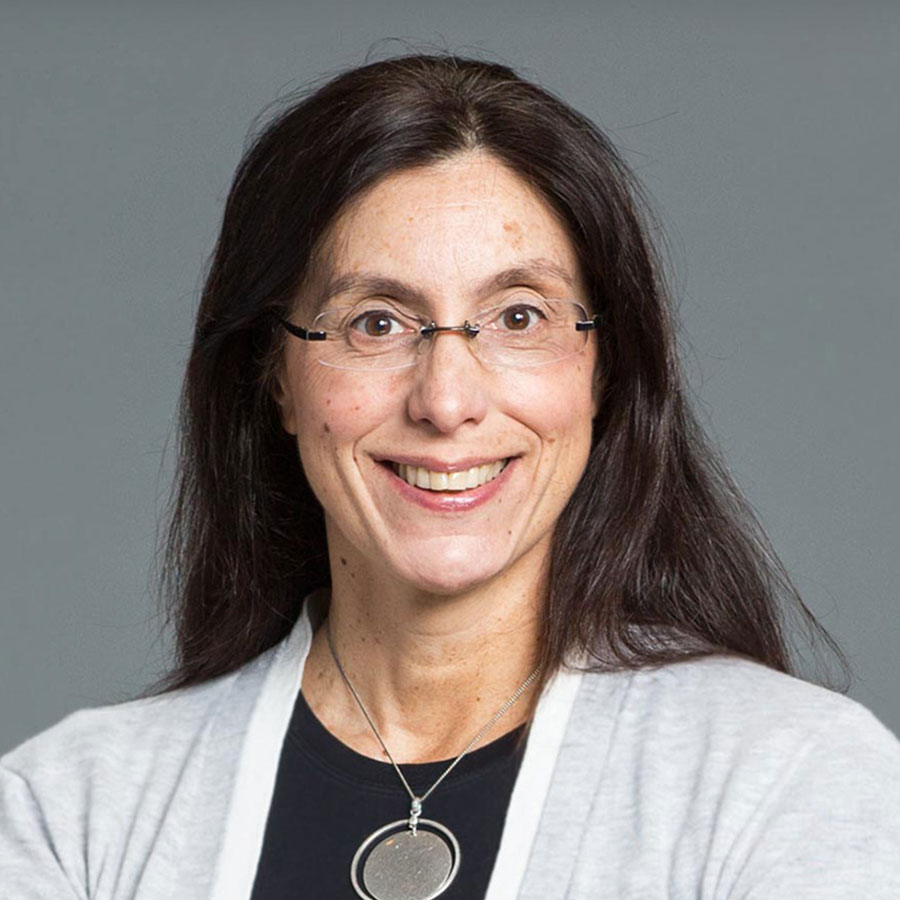Jim Blauvelt is a complete New Yorker from tip to toe. He was born in the city but spent nearly his entire childhood living elsewhere, as his father moved the family around the world for his career. Upon returning to the U.S. as a teenager, Jim first attended prep school in New England and then studied hotel management at the University of Denver.
After graduating in 1976, he lost no time in heading straight back to Manhattan, and after getting his professional start at the New York Hilton, he began working for the historic Waldorf Astoria Hotel in 1983—where he’s been ever since.
Having spent some 40 years as the Executive Director of Sales and Marketing for the hotel’s food and beverage division, he now serves as a special consultant to help guide the hotel through its watershed change in ownership and a sweeping, years-long restoration and remodeling into a luxury hotel-condominium complex.
1.
Paul & Vince: How did you come to be in New York City and in your current career?
Jim: I was born in New York, but when I was quite young, they put me on a ship to Europe for two years. Then that pattern continued from the time I was five years old until I was in my teens. My dad was an executive with a pharmaceutical company that had developed a patent for erythromycin. He was building plants as fast as they could come together to bring erythromycin to the globe. I recall that Southampton, England was the first plant outside of the United States. We lived there, then in Rio de Janeiro, then Melbourne, then Cartagena, and many other places, jumping from continent to continent at what seemed like a moment’s notice, sometimes staying in luxury hotels for weeks and months at a time.
As I got older, my parents started asking me what I wanted to do as a career. I guess they assumed I would be something conventional—either a banker or a lawyer. When I told them I wanted to go into the hotel business, they asked, “Why on earth would you do that?”
And my response was basically, “Because you’ve been dragging me through every luxury hotel on the face of the earth for the last twenty years! Why do you think I want to do that?” [Laughs.]
Anyway, the one thing I knew how to do intrinsically was to live in a hotel. So they did their best to discourage me from that path, but it didn’t work. When we came back to the U.S., my parents moved us out west while I was in college, and I gave that a stab—but I just never took to the West. The day I graduated, I got in the car and I drove directly to Manhattan. Without a job, without a place to live…all I wanted to do was go back to New York.
I’ve been passionate about the city since I was an adolescent for reasons I don’t know—I think if you’re a New Yorker, you’re a New Yorker. So, it was my objective to build my professional and personal lives around the decision to return to Manhattan.
Paul & Vince: So, you came back to New York. How did you get started in hotels?
Jim: I was hired by Hilton Worldwide, and they wanted to put me through a training program with many hotels in the northeast region. I think I did like one location, but after that, I called up the New York office and said, “I’m not happy. I either need to work in Manhattan, or I need to find another job.”
So they brought me back and put me at the Hilton New York, a relatively new hotel. It was a flagship property globally, and I spent the first four years of my career with Hilton at that hotel. And then, in 1983 I finally moved over to the jewel-in-the-crown on Park Avenue, the Waldorf Astoria. It was the last place they moved me, and I spent the next forty years there.
2.
Paul & Vince: What does a typical day on the job look like for you?
Jim: Well, the telephone department used to have a joke—if someone called the hotel and asked to speak to the President, they would always have to say, “Which one?”
That was the environment in which we all worked—this wild fairytale land of hotel operations, of celebrities and visiting royalty and high-society galas—and you were just flabbergasted with the level of performance expected of you each day because of what the hotel and its history represented in New York and around the world.
I had about 40 direct reports and 850 indirect reports. My job was to coordinate all of these specialized teams to make sure that our sales objectives, our pre-booking, and our booking pace were monitored, that our profitability figures were reached and that customer satisfaction indices were monitored and achieved. Everything was very, very measured and statistical—and as the divisional director, I was responsible for pulling all of that off.
Now, my specialty as the executive director of the food and beverage division was to work directly with the high-society clientele because that’s where the hotel’s reputation, prestige, and branding came from. It was a given that the Waldorf’s role was to underly the social and media prominence in the society market of New York—which I worked on daily.
Paul & Vince: How many events per year were you responsible for?
Jim: Personally? Oh—maybe 50, or 60 events tops. Not a lot.
Paul & Vince: Oh, that sounds like a lot!
Jim: Not compared to the thousands of events that would take place there! But my role was especially focused on the singular events—opening night for Carnegie Hall or the Philharmonic Guild, annual galas for the big hospitals, or fundraising for the Breast Cancer Research Foundation.
As you know, these philanthropic events are patronized by the wealthy and the socially conscious. In New York, philanthropy in particular is a means of social, ah, ascendancy, as they say. When you’re rich and successful and want to make a name for yourself in New York, the last piece of the puzzle is to start giving your money away as fast as possible. And my business involved making that an easy, enjoyable process for you. [Laughs.]
But these silos, these big money drops at the hotel from philanthropic institutions—they were very, very important. These events were often the most expensive thing an institution would do all year. It would cost them a quarter of a million dollars, and it would be over in three hours. And at stake were millions of dollars, and you either raised it or didn’t raise it.
Paul & Vince: Were you expected to be present or play host at the event?
Jim: I was always there, often late into the night. The Waldorf relied on me and my staff to represent the institution. We would partner with these philanthropic institutions as advisors, experts, and voices of experience and wisdom for these events. Many of these big institutions came to us for counsel, and over time, because we’d worked so long to put these things together, we developed friendships and became trusted confidantes. And that’s why these institutions would stay with us for years and years with that kind of partnership in place.
It’s also an interesting time right now because, as you may know, the Waldorf was owned and operated by Hilton Worldwide for decades. A few years ago, Hilton sold the New York property to the world’s largest insurance company, Anbang Insurance, now Daija Holdings USA.
Paul & Vince: Right—the hotel has changed hands, and we’ve seen some extraordinary condominium apartments added to the mix of the new Waldorf hotel/condo complex. How does that change things for the business?
Jim: Well, now there are two parties involved: there’s Hilton Worldwide as the managing agent, which will run the hotel for at least 100 years, and then there’s ownership out of China, which has a financial interest in selling the apartments, which are paying for the renovations on the hotel side. Eventually, there will be 375 apartments and 375 hotel rooms.
So now these two entities, hotel operations, and ownership, are trying to understand each other to make their financial priorities work together and cultures come together, which is not easy considering the backgrounds of both of these companies—one is an insurance company from Asia. One is a hotel company headquartered in Washington, D.C.
So, this dance—let’s call it a waltz—between the two organizations has been interesting to watch. They’re both very experienced in their own worlds but unfamiliar with each other. So we’re watching them go down the aisle together, on the road to reopening what both have agreed needs to be the world’s best, finest, most famous hotel when it opens up.
And it does need to be, especially since the project is already at $3.2 billion, making it the most expensive hotel on the face of the earth, and it has two more years of construction before the figures are done.
3.
Paul & Vince: Could you let us in on a few things that most people don’t realize about your job?
Jim: Well, in this position, you end up in very personal relationships inside people’s lives. When you’re working with people at such a base level—housing them and feeding them—when they’re taking you into their confidence about their needs—it sets up a very odd business relationship. You’re not selling cars; you’re not selling stocks and bonds; you’re not only selling shelter and meals but their personal success in this world.
So it sets up a strange dynamic because it’s very personal, and that sometimes gets fraught. Just like with friendships, it can go to the heavens or off the rails. It’s a lot of quicksand and thin ice—and there’s big money involved.
For example, when we deal with the royal family—from any number of countries—they might come in for a month and then stay for a year. And they might make requests like, “We like the 34th floor, except we want to combine three apartments into one, and we want to remodel ten of the bathrooms, and we want to set up a staff kitchen in this suite…”
And some of these things could cost millions of dollars to achieve and then put into escrow so that it could all be undone when the visit ends. And then sometimes the visit could go on for six to nine months longer than intended, and other times, depending on what was happening in the world, that visit could end tomorrow! Working in a world of wealth and privilege where anything is possible, you can get into crazy land.
You know, “I’d like to pay for a swimming pool in my apartment.” And that means buying the apartment below it and drilling through the floor.
“Oh, I want to have a whole apartment sealed and pure oxygen pumped in,” right, or “I don’t want anything near me that’s red.”
These crazy scenarios that people’s lives are made of become your life, and you, you know, you make these things happen all the time. It’s bizarre. [Laughs.]
4.
Paul & Vince: What are some of your favorite things to do in the city on your day off?
Jim: Well, I really, truly love walking in this city, especially at night! That’s when it’s beautiful and full of life and excitement, and people everywhere are engaged in their own New York.
Paul & Vince: So, any walking around in any neighborhood, or do you have a favorite walk?
Jim: Ah, well, my favorite walk, which I have done over and over and over, is at about 10:30 at night, leaving the Waldorf and walking down Park Avenue and through Grand Central and into Murray Hill, where I live.
Walking through Midtown Manhattan, all lit up in the evening, and seeing people jumping into limousines, leaving restaurants, leaving theaters, and just looking at the mosaic of all that life and all those people having their own special experiences—it’s just beautiful.
There are very few places in the world where you can walk and see what you see in Midtown Manhattan in the evening. It’s glamorous, it’s diverse, it’s important—and it’s every night. It’s just this never-ending river of “Oh my gosh.” It’s just an amazing experience. Other than that, I have to take no specific geographic walk—as long as it’s surrounded by the city’s lights, noise, and smells, that’s my favorite walk.
Paul & Vince: That’s great; we love that answer. And that’s the energy that drew you to New York in the first place, right? You were chasing that, and it seems that you’ve found it.
Jim: Yes, and it keeps me going!
…and one more, Just For Fun
Paul & Vince: Okay, Jim. Now it’s time for the Just For Fun question. Are you ready?
Jim: Oh, dear…
Paul & Vince: If you were to take a year-long trip to space and could only bring three physical objects, what would you choose and why?
Jim: That’s easy: wine, cheese, and oranges…for obvious reasons.
Paul & Vince: Is it obvious? How many crates of oranges are you bringing? It’s a year!
Jim: It will be a cask of wine!
Paul & Vince: A cask of wine?!
Jim: Yes, it would need to be a cask of wine, a wheel of brie, and—[laughs]
Paul & Vince: …And do you have a specific wine? What’s your—your space wine?
Jim: My space wine is a chardonnay because you can’t do carbonation in space.
Paul & Vince: [Laughs.] Oh, that’s good! And you don’t want to spill it—it would spill up—
Jim: You’re not gonna get me to change my answer! [Laughs.]
Paul & Vince: No, we want you to expand it! And now, what about the oranges? Is this an orange-a-day type of thing?
Jim: Well, if you can only have one fruit, and, you know, it’s all about health, health, health—and oranges transport well! They have their own packaging.
Paul & Vince: What kind of wine was it?
Jim: A French chardonnay.
Paul & Vince: Perhaps the French air force could help you with this because so many products already seem French?
Jim: The French space force. I’m certain they have great astronaut outfits. Very stylish, if Air France is any indication…
Can I bring a fourth thing? Because…music, of course. If there were a fourth, I’d like some music.
Paul & Vince: There you go! And that’s not technically a physical object, so in theory, you can have all the music you want.
Jim: Well, can’t I bring my iPhone? Because that will do anything.
Paul & Vince: Man, you won’t get a signal up there!
Jim: Oh, no. Are there restrictions on this?
Paul & Vince: Maybe we should have been clear that this is outer space, not just a “space” somewhere!
Jim: I’ll have to carry a tune in my head—helmet.
Original artwork by Jolisa Robinson, Gavriani-Falcone Team Marketing

